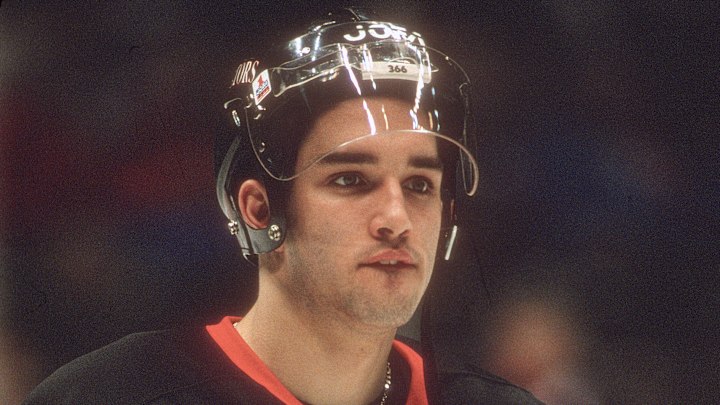As we all know, the Canadiens weren’t exactly in the running for Daigle, having claimed their 24th and to date, final Stanley Cup against all odds that season (selecting Koivu 21st overall instead) yet a number of other Canadian teams were, including but not limited to the Quebec Nordiques, Edmonton Oilers and of course, the Ottawa Senators.
Now, as I’ve written about to no end over the past however many months, the Senators aren’t doing very good right now, which is quite frankly a catastrophic failure considering the amount of talent they have on their roster. However, when compared to the franchises beginnings in that 92-93 season, this current Senators squad seems more akin to the legendary Ottawa Silver Seven from the pre-NHL era, where One Eyed Frank McGee, Percy LeSuer and company led the club to 11 St+anley Cup titles before relocating to St. Louis in 1934 (strange I know), and things would somehow only get worse with Daigle in the picture.
1992-93 was not a good year for the Senators, nor was it a good year for NHL Expansion in general. With a 10-70-4 record (I know that sounds fake, but it isn’t) the first-year Senators were quite simply putrid, with a 5-3 season opening win against the Canadiens giving fans falsified hope that this team may be better than what was once initially thought. As it would turn out, they weren’t even getting started, dropping their next 21 straight games and setting an NHL record with 39 consecutive losses on the road, finally winning against the New York Islanders in game 81 of what was an 84-game season.
So yeah, things weren’t looking especially great. All the while, the attention surrounding Daigle grew and grew and grew, with it becoming more and more apparent as the season wore on that the Montreal native was a likely lock to go to Ottawa first overall, an opportunity no team in the NHL would’ve passed on at that time no matter how much hindsight we have today.
In spite of receiving purported offers including the likes of Peter Forsberg and Owen Nolan from the Nordiques (it’s okay Senators fans, I know it hurts), on June 26th, 1993, Ottawa selected Daigle with the first overall pick, promptly giving him a loaded 5-year contract worth $12.25 million before he had even stepped foot on professional ice (more on that later). Regarding his draft position, Daigle uttered the now famous comment “I’m glad I got drafted first, because nobody remembers number two”.
As we all know, No. 2 was Chris Pronger. And No. 4 was Paul Kariya.
Again, hindsight, as most people saw it as idiotic taking anyone but Daigle first, but the point still remains. Even still, Ottawa has Daigle, they drafted Alexie Yashin the year before in 1992, and they have the support of a city desperate to have hockey back after such a storied history. Everything is coming up Milhouse, and the Senators future seems a bit brighter at least, right?
Well… nope. It goes without saying that the 1990s NHL Expansion was a weird time. In the modern-day, expansion teams like the Seattle Kraken and Vegas Golden Knights have spoiled most NHL fans when it comes to their immediate success in both the regular season and playoffs (with Vegas having already won the Stanley Cup in just their sixth season this past Summer).
Yet, for the longest and I mean longest time basically until Vegas joined the league in 2017, NHL Expansion was seen as a recipe for misery and dismal performance until said Expansion Team slowly acquired draft capitol which would hopefully lead to home-grown star players leading the team into the future. With the rules for player protection in the Expansion Draft being far more lenient at that time, the majority of expansion teams were left to pick from the scraps, not like the Marc-Andre Fleury’s and Jordan Eberle’s the Golden Knights and Kraken found themselves with respectively.
Now, when I say scraps, you might be thinking of guys like a Mark Napier or Keith Acton to use old Canadiens, guys who weren’t necessarily breakout offensive stars, but knew how to produce and put the puck in net.
